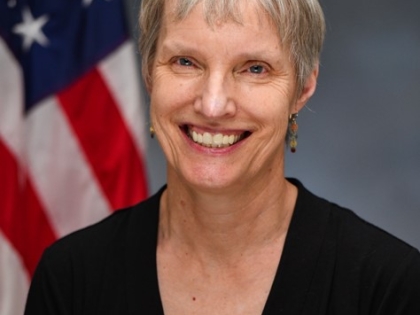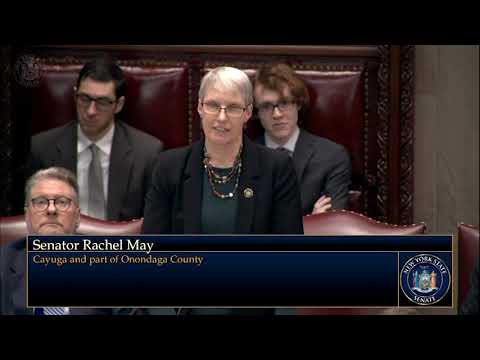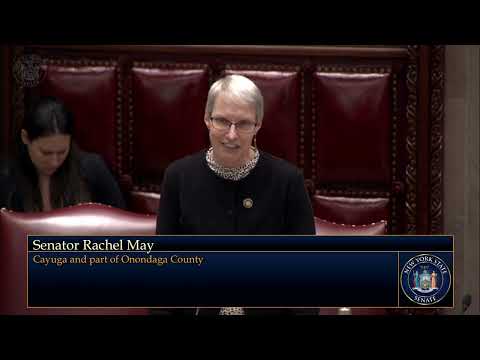
Senate Passes Senator Rachel May’s “Rain Ready” Stormwater Management Legislation
Dan Messineo
April 4, 2025
-
ISSUE:
- stormwater
- Climate Action

flood events
(Albany, NY) As deadly tornadoes and catastrophic flooding ravage the Midwest, extending into Pennsylvania and Western New York, the Senate passed the “Rain Ready” bill to give certain state water and sewer authorities the ability to prepare for and manage these severe and ever-increasing storm events. The bill (S.4071) is carried in the Assembly by Queens Member Nily Rozic (A.7467).
“The warming atmosphere is making heavy rain and flooding more common in every corner of New York. We must give local water authorities a full array of policy tools to cope with the stormwater crisis. My bill allows them to incentivize and implement smart strategies to make their communities “Rain Ready,” said Senator Rachel May (D-Onondaga, Cayuga).
"Flooding is a crisis that disrupts entire communities—and our aging infrastructure simply isn’t equipped to handle the volume of stormwater we now face, leaving too many neighborhoods vulnerable and under water. The Rain Ready NY Act would give water and sewer authorities across the state, the authority needed to invest in stormwater management and resilience. I’m thrilled to partner with Senator May on this effort to make New York rain ready and look forward to advancing this legislation in the Assembly," said Assemblywoman Nily Rozic (D-Queens).
Effective stormwater management provides a multitude of critical benefits. First and foremost, it mitigates flooding risks, protecting lives and structures. In recent years, many people have tragically suffered injury or death during storm events when unable to be rescued from flooded roadways and basement apartments in urban areas like New York City. Managing stormwater also protects water quality and aquatic life by helping filter and divert harmful pollutants, road salt, pesticides, and litter away from waterways.
Jeremy Cherson, Associate Director of Government Affairs, said, "Today’s passage of Rain Ready NY in the Senate is a major step forward for cleaner water and better flood management in New York. For decades, Riverkeeper has advocated for innovative solutions to manage stormwater — excess rain that can overwhelm communities, flood homes, and pollute local waterways like the Hudson River. While more work remains to fully achieve our goals, we celebrate the Senate’s bipartisan passage and now turn our attention to the Assembly, where we urge members to cosponsor and pass this critical legislation before the end of the session. Riverkeeper is grateful for Senator May’s leadership and the Senate’s commitment to this issue. We are also excited to see Assemblymember Rozic championing the bill in the Assembly and look forward to sending it to Governor Hochul’s desk."
"Senator May continues to lead one of the most important climate bills in New York. The Rise to Resilience Coalition applauds Senator May and the New York State Senate for passing the Rain Ready New York Act, especially at a time when policy and funding for climate resilience faces major threats at the federal level. The role of states has never been more important, and today is a major milestone toward a rain-ready New York." - Tyler Taba, Director of Resilience, Rise to Resilience Coalition.
"New York must find creative ways to reduce the growing extreme rainfall risks that we have all experienced firsthand. Under Senator May's leadership, the Senate's passage of the Rain Ready New York Act moves us closer to achieving that goal. Waterfront Alliance strongly urges the Assembly to follow the Senate by passing Assemblymember Rozic's bill." - Chris Ward, Interim President and CEO, Waterfront Alliance.
The Rain Ready bill will not only give New York’s water and sewer authorities permission to spend existing funds on infrastructure improvements and upgrades, but it will also grant the ability to take action concerning the increasing number of impervious surfaces that cover our urban areas. The runoff caused by these surfaces is compounded by the increased volume of rain we are receiving. Giving our municipalities the authority to manage this growing problem is the first step to meeting the challenge of excess stormwater. Making our communities more resilient to the extreme weather events we are now experiencing every season is not a choice; it has become a life-saving priority.
related legislation
Share this Article or Press Release
Newsroom
Go to Newsroom

